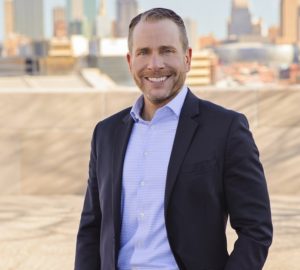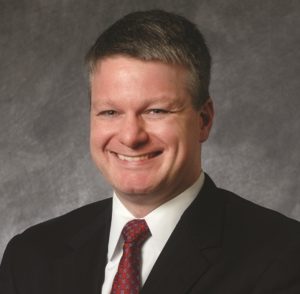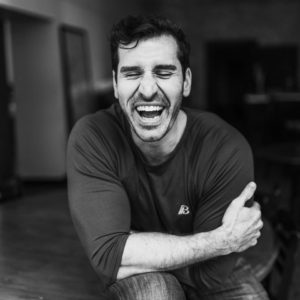Denis O’Brien [0:37]
Welcome to Episode 178. Change Finance. Hey Money Clan! A very warm welcome to the Chain of Wealth podcast. I’m your host, Denis O’Brien.
Katie Welsh [0:49]
And I’m Katie Welsh.
Denis O’Brien [0:50]
Kate, super exciting episode today and about a different topic, which a lot of people don’t know about.
Katie Welsh [0:56]
Yeah, yes, you’re right. So today, we talked to Dan, all about sustainable investing. And I’m going to be completely frank with you Den. Before we spoke to Dan, I did not know a whole lot.
Denis O’Brien [1:11]
Kate’s you know what the thing is, a lot of people don’t know a whole bunch about this. It’s already a topic area. And I had only heard about it through studying finance. But I think most people don’t even realize that this is an option. So just to sort of at a high level breakdown, what it is, it’s really looking at investing stuff that really agrees with your long term vision and mission and what you believe in. And like as an example, if you don’t like plastic pollution, you shouldn’t be investing in companies that have a lot of plastic consumption, because that goes directly against what you believe in. And sort of the idea is sort of like vote with your wallet, if that makes sense.
Katie Welsh [1:50]
Yes. Well, and I’m very thankful to Dan, because he spent a lot of time really breaking it down for us and answering a lot of question.
Denis O’Brien [1:59]
Yeah, definitely. And I really think that their company has got a great version and totally support them. I highly recommend that people do check it out.
Katie Welsh [2:6]
Yes.
Denis O’Brien [2:7]
Cool. Well, before we dive into the episode, if you guys haven’t already, we’re currently in the process of finalizing our debt course. Head on over to chainofwealth.com/debtcourse, we’d love if you signed up. We’re currently giving away a sponsorship to five lucky people. So definitely put your name down. And hopefully you’re a lucky winner.
Dan joined Change Finance in 2019, with 15 years of experience in financial product distribution, and a passion for sustainability. Throughout his career, he has consulted with countless individuals and institutions to help them meet their financial goals, while making a positive impact through their investment decisions. Dan holds an MS in environmental policy and management and is a certified Investment Management analyst. Welcome!
Dan Carreno [3:16]
Hi guys. Thanks so much for having me on.
Katie Welsh [3:18]
Yeah, so I wanted to start off real quick, what is sustainable, responsible and impact investing? And what are some of the differentiating factors?
Dan Carreno [3:30]
That is a fantastic question to get started. And the first thing I’d like to say is we in the financial world, you know, hadn’t made these things, the easiest to understand at times. With there’s a lot of acronyms floating around out there. So I guess to directly address your question, sustainable, responsible and impact investing, those terms can often be used pretty much interchangeably in the industry. And they’re often lumped together and into an acronym that we refer to as SRI. So when you hear people say, SRI investing, and that’s kind of referring to this broader universe of what we call values based investing. But one other acronym that individuals may hear a lot as well is ESG, that stands for environmental, social, and governance. And there are some, you know, nuances and slight differences between those, but I think the main takeaway that I would want the listeners to get out of it is that you know, just about every asset manager is maybe a little different, and how they approach sustainable responsible and impact investing. So, you know, it’s important to consider each investment sort of on its own merits and judge it for what it is.
Denis O’Brien [4:45]
Yeah, very interesting area. And I think that, like you said, like, a lot of people don’t necessarily know about it. So what would you say is sort of a segment of the financial industry, within sustainable and responsible investing and stuff? And like, how is that area you really used to generate public? So another? What sort of goods for the public’s enjoyment?
Dan Carreno [5:8]
Yeah, so what is so critical about this style of investing in terms of trying to improve the world around us is that at the end of the day, it’s really about changing business incentives. So my spirit animal in the world is actually Yvon Chouinard, who’s the founder of Patagonia, the outdoor gear brand, ship, you guys are fans as well. But, you know, he’s got a wonderful quote that, you know, has been a guiding force in my life. And he says that, you know, if you want to change the government, but you really have to do is change business, because business essentially runs the government. And so how do you actually change this? Well, of course, you can change your consumer habits, right, that’s one way to do it. But another very important lever that we have to pull is in what we do as investors. So if we look at the US right now, depending on the study that you look at, it is somewhere between one out of every six, and one out of every $4 invested in the United States is invested in some sort of sustainable, responsible or impact investing strategy. So what does that mean? Well, it means that if you are a corporation who is going out there, and essentially damaging people and the planet in the course of doing your business, then you are essentially going to be shut off from a very large portion of the capital markets. And if you’re a CEO, of course, your incentive to maximize your stock price. So this becomes a really big incentive for them to want to change their behavior Institute more sustainable practices, and that’s how it really creates, you know, this these public goods, so to speak this better world around us.
Denis O’Brien [6:46]
Yeah, so in like, some of my studies, when I’m doing level one of CFA, it sort of spoke about that, you know, some investors will be good, so will certain things and, you know, that may be as a result of religious beliefs, or personal beliefs and stuff like that. Like, as an example, maybe someone that is, I don’t know, what’s good example.
Katie Welsh [7:8]
I want to say something as plastic pollution, I’m really into that.
Denis O’Brien [7:12]
Yeah, so so maybe a very anti plastic pollution, you will tend to avoid companies that have got anything to do with plastic, and, you know, sort of like you would inform your asset manager, or whoever’s taking care of your portfolio that you are very against that kind of investing. Would you say that there is a certain group of people that tend to be more focused? What this kind of stuff? Or do you think that you know, the more people just kind of learn about sustainable investing, the better and, you know, the bigger that sort of pool will get over time?
Dan Carreno [7:40]
So that is a really interesting question. And I think the the common thought process in the industry, based upon a lot of different surveys and studies that have been done over the years, is that we see sort of a disproportionate level of interest in this style of investing amongst two big demographics, which are women and millennials, right. So the younger you are, typically the more you you’ve tended to care about these things. But I will say in just really the last six to eight months, there’s been some additional research coming out from different organizations out there like Morningstar, that are starting to point out that you know, a couple of things, number ones, the numbers are starting to shift, and also a few correct for some, you know, different variables in the equation, socio economic status, it really turns out that the interest in this style of investing is pretty broad base. And across the board, whether you are male, female, young, old, it really turns out that about 75% of the population would prefer to invest this way if they could do so easily and in a way that didn’t sacrifice returns.
Katie Welsh [8:51]
So speaking of all that, there must be some pros and cons to sustainable investing. Are you limited in terms of what you can invest them?
Dan Carreno [9:3]
Yeah, so great question. This is, I think, one of the biggest misnomers in the industry. And, of course, there is some truth to the fact that if you decide to invest this way, there are going to be many companies that conduct themselves in certain ways that would not find their way into various Sri or SG portfolios. But the reality is when we really look at all the data that’s out there, and we look at all the different studies that have been done about this style of investing over let’s say, the last 2530 years, you know, the data just really doesn’t back up any assertion that you’re going to have to sacrifice return. And there’s actually a big meta analysis that was done back in 2015. In the Journal of sustainable economics, you can tell that my bedtime reading is pretty boring. But what we found in that study is that 2200 different individual studies, concluded that in 90%, of them, individuals did not sacrifice financial performance by, you know, following their values in their investment portfolio. And in fact, over 50% of the studies, they found that this style of investing, actually enhanced returns.
Denis O’Brien [10:22]
It’s really interesting. So I’d like to chat to you a little bit about like companies and themselves. And obviously, companies, like you said a little bit earlier, they sort of drive everything else, you know, they drive the government’s and they drive how we as consumers act and behave and stuff like that. So how much role would you say that really the tone and at the top, and these companies, say, from the Board of Directors, to the C suite, all the way down to, you know, your minimum wage worker at these companies? How important Would you say that sort of corporate governance is and really instilling that in these companies. And I know, obviously, like, lately, there’s been a big trend towards almost like a sustainability report that companies start to do and the whole company seems to the more you kind of, as an investor, understand what they’re doing.
Dan Carreno [11:8]
So I would say each and every day, it’s becoming more important and more common, and we have a saying, at change, finance, that responsible business is just good business. And this sort of brings us to, you know, not only the benefits that sustainable investing can create for the world around us, but what does it do for us individually as investors, and I think more and more, both investors as well as management, and corporations are looking at this as a risk mitigation tactic. And, you know, we actually at change, finance will refer to, you know, these 21st century risks that are facing corporations for unsustainable corporate behavior. And this ranges from everything to litigation risk, companies that are getting sued for various reasons. There’s what we refer to as loss of social license. This is kind of a fancy way that we use for saying a company that’s, that’s losing its reputation in society and losing customers, and investors. As a result, stranded asset risk is another big 21st century risk that we refer to, I’m happy to dive into that a little bit more. And if you don’t think the listeners are familiar with that, that terminology. But ultimately, management is is going to say, hey, if we implement these sustainability practices, if we become a more responsible business, we’re going to look for these risks, we’re going to be more stable as a company, and it’s going to be better for the investors in the long run.
Denis O’Brien [12:42]
In this day and age, you know, like, it’s all about, you know, the flow of information. And really, we’ve heard people say that just one tweets can move a stock price as much as 10%, do you really think that’s it’s critically important for these big culprits and the people at the top that are in the public eye, to really be a bit more responsible? And maybe you can even talk about that China acid risk a little bit more, like you suggested? You know, like, how does it sort of impact the way that people see and view these companies and even the return that they end up generating?
Dan Carreno [13:15]
Sure. So um, yeah, to your first point, and you’re absolutely right, I think I’ll different The world is today versus 20 years ago. And when something happens when a company conducts itself in a certain way that that gets bad headlines, you know, this just ripples through the social consciousness so much quicker than it used to, because of social media, just how interconnected we are with our phones, and the internet at all times. So absolutely, I think that that’s something that’s weighing on the decisions that that managers are making at large corporations. And then, you know, to more specifically address the risk of stranded assets that is really specific to the fossil fuel industry. And this is to change finance, really one of the most mispriced risks that currently exists in the market that is not being, you know, well recognized and well appreciated by investors. And, you know, just to quickly sum up what stranded asset risk is, it’s that, you know, most markets are making an assumption about fossil fuel companies. So if you’re a large fossil fuel company, you own all these assets, and they’re somewhere under the ground, right? These days, hazards of oil and gas. And many analysts on Wall Street are going to assume that sooner or later, that company is going to dig up that oil, it’s going to dig up that gas, they’re going to sell it for a profit at some point in the future. And of course, you know, we do some financial modeling and discount that stuff back. That’s what creates the value of the company today. So stranded asset risk is a question that says, Well, what happens if they don’t dig up all of those assets? Then what is the company worth today? And I can tell you that when you really work through the numbers, you know, the company is not worth nearly as much, and it’s a little scary. And there’s various reasons why those assets may not get dug up in the future. There’s certainly regulations that could come down on companies, there’s carbon pricing, that would be where you are seeing implemented in different parts of the world. I would say the most powerful trend, though, is really just market forces. If you look at what has happened to the coal industry over the last 10 years, many of those coal assets have, you know, already begun to become stranded assets. And it’s simply because coal has been displaced in the market by a cleaner and cheaper source of fuel. And in the most part of the last 10 years, that’s been natural gas because of fracking. But, you know, renewables have also been part of that mix. And as we look forward, now, you know, renewables, wind and solar are really getting cheaper and cheaper. In the end, they’re going to be in the same position to do the same thing to natural gas and oil, that natural gas essentially did the coal over the last decade.
Katie Welsh [16:10]
That’s really interesting. So Dan, at Chain of Wealth, I just want to pivot because we’re always talking about mitigating exposure when investing. And I’m curious to know, how does sustainable investing fit into this?
Dan Carreno [16:26]
Sure so. And again, each and every asset manager out there, right, there’s a whole lot of different financial products that will make it I think, very easy for some investors to start investing in this way. And each one is going to approach it a little bit differently. So my recommendation is always, you know, folks have to kind of do their homework a little bit, you know, do some digging on the internet to see, you know, how a particular asset manager might be thinking about, you know, stranded asset risk and fossil fuels. You know, I can speak about change finance. And for us, we look at stranded asset risk as being such an enormous issue, that when we evaluate companies were evaluating them based upon carbon exposure, as well as even other forms of pollution, such as sulfur dioxide, particulate matter, and really looking at those is just unacceptable risks. So if there’s too much, or too many emissions coming from a particular company, then it’s just not one that we’re interested in investing in. So we actually do not know invest in any companies that either extract and burn or even process fossil fuels,
Denis O’Brien [17:34]
it’s actually really interesting, the impact that it can really have, you know, and from a company perspective, like, say, you are in that company, and the companies that we’re talking about that are in these fossil fuels, they’re typically multi billion dollar organizations, they these massive conglomerates, and, you know, they literally eat well, they don’t just consume other companies as they go along. And you know, if you like to say, put that in a silo and say, well, there is this massive shift happening towards renewable energy, and such things like, what what do you think those companies can really start doing to win back people, and that was trying to look at those better, cheaper alternatives for the environments.
Dan Carreno [18:14]
Yeah, and don’t get me wrong, but we definitely would like to see a much, you know, sharper pivot amongst the the energy sector towards cleaner, more practical sources of energy, like, of course, wind and solar. But you know, these are, these are large battleships, if you will, and they are difficult to turn, and we’re just really not seeing the shift and capital allocation that we thought we would have seen at this point in time. And, you know, it’s difficult to say, if they’re really going to be able to play a significant role in sort of, you know, what we refer to as the energy revolution. You know, and think about this. I mean, this is one of the things that really makes it difficult to invest in these companies, you know, all the science out there tells us that if we were to dig up and burn all of these oil and gas deposits that I referred to before, all of the things that these companies already own, then we know that we have some pretty serious issues, right? that pushes global surface temperatures above four degrees Celsius above where we are today, we have, you know, some some pretty nasty problems that come about you yet, even with that knowledge, so many of these companies are still spending billions of dollars a year to find more assets, things that we kind of know that they can never actually dig up and burn. And that just tell us doesn’t represent a company that is thinking about the future, and in a position to be profitable over the long term.
Denis O’Brien [19:51]
So how do you change really try and identify companies that are a bit more environmentally responsible? What is the sort of process you go through? Do you have like a school call that you put together in terms of what’s going to be included in some of your asset allocation? So how does that sort of work internally?
Dan Carreno [20:6]
Yeah, and that’s a fantastic question. And we actually, we evaluate companies based upon 50, different factors. And we believe that these are the 50 factors that are really going to be most material to two things, right, of course, the financial viability of that Corporation over the long term. But also, of course, the impact that that company is having on people and planet around them. So I don’t want to just consistently harp on the environmental aspect, of course, we’re evaluating companies based upon their degrees of carbon emissions and the other emissions that I referenced before. But we also look at some of the risks that could face these companies and sort of the social arena, if you will. So, as an example, you know, we look to see if there are any human rights abuses that exist up and down a company’s entire supply chain, we will even look at hospitality companies and see if they have a policy in place to train their workforce in order to disrupt sex trafficking in the hospitality industry. So not only are those just good things that the company should be doing for the public good. But of course, this insulates them for risk in the long term, you know, think about a large hotel chain, and if all of a sudden that came out, you know, six months from now that they had a significant sex trafficking issue in their business, and it’s going to be terrible for the stock price. So why would you want to take that risk in the long run? If there are other companies, which of course we ultimately populate our portfolio with, that are doing the right things?
Denis O’Brien [21:42]
Yeah, and I seem to remember a little bit of a while back, there was a thing that came out about how someone who was making a part of the iPhone, like their factory had like child labor and stuff like that. And you know, like that came out and Apple stock price went down a bit because of that. But do you think that you think that there’s enough an emphasis and people really catch a wake up call? Do you think that the shift towards sustainable investing is just going to grow and grow as time goes on? I mean, like, just to compare it to another sort of industry is food, you know, people have started being a lot more health conscious, they kind of understand what they’re eating now. And sort of as time goes on, more and more people realize that if they eat phosphates all the time, it’s going to have a very bad impact to the health. So do you sort of think that that’s shift is going to happen with sort of an accelerating pace within sustainable investing?
Dan Carreno [22:32]
That is an amazing analogy, compared to the food food industry. And I think that there are a lot of similarities there. So I completely agree, I think this is going to continue to pick up steam. The Sustainable investing universe now is a $13 trillion a year business. So as I mentioned before, it could be anywhere between one and four, and one out of every $6 invested in the United States. So it’s growing very quickly. And you know, we have changed finance believe that within, you know, the next few decades, really, there won’t be a distinction between Sri and he SG investments and more traditional investments, everything will probably take into consideration the factors that I’m mentioning, because again, there will be this epiphany, this, this realization, that responsible business is just simply good business.
Katie Welsh [23:28]
So with some of that shift coming that we were speaking about, what are some of the top tips that you have for a new investor who wants to shift their portfolio toward a more sustainable investment option?
Dan Carreno [23:41]
Yeah, that’s a great question. A couple of things that I typically recommend when I’m communicating with individuals is that, you know, number one, it’s important just to really put some thought into what you believe or the values you would like to see represented in your portfolio. For some people, it may be more environmentally focused for other people, maybe it’s gender equality, or something along those lines. So, you know, think about what’s most important to you, I also think it’s worth thinking about that you know, what risks you think are, you know, most material to your investments, if you really, truly believe that, you know, renewable energy is going to take over over the next couple of decades, then maybe you really want to seek out companies that are limiting that, that energy and fossil fuel exposure. So think about those two factors. And then, you know, it does take a little bit of digging online to really identify a few different investment options that are going to fit those values. And I guess what I would tell the listeners is that there are not a huge number of companies out there doing what change finances doing. But there are definitely enough enough that you can, you know, do some digging on Google and really figure out you know, who’s going to provide the right type of portfolio that, you know, you can invest in a handful of different products and really be well diversified and going the right direction. The last thing that I would mention, though, is if somebody really wants to get serious about this, and they don’t necessarily have the time to do that, that work themselves. There are a number of financial advisors all across the country, that that do focus on this kind of business. And it is worth finding one of those individuals if you really, really want to do it in a very thorough and well educated way. And of course, if anybody’s looking for somebody in their area that may focus on this kind of investing, you can always get in touch with us through our website. We’re happy to make those introductions.
Katie Welsh [25:47]
Awesome. Yeah. And definitely when you’re making those new investments, doing your homework is super important. So before we go on to our value link round, I wanted to ask for your 32nd elevator pitch, and how people can reach you if they do want more information for their area, or in this thing.
Dan Carreno [26:8]
Great. Thank you. Yeah, so I think the most important thing to note about change finances, that our mission is to create a different financial system that creates better incentives for corporations. And that is going to create a better world for everybody, right and for all of our children in the process. And most important, ultimately, we want to allow investors to do that to invest in alignment with our values without having to sacrifice returns. And if we can do that, and of course, it goes back to that that win win situation. And if people would like to know more about how we’re doing that, and really dig into the nitty gritty of change finance, you can go to change, dash finance.com and find all the information about the organization there.
Denis O’Brien [26:58]
Great, thanks, Dan. Money plan was gonna say a quick break, and then we’ll dive right back into the saddle and ground.
Katie Welsh [27:5]
Lately, life has been super hectic for me. But that doesn’t mean that there can’t be time for learning something new. I don’t know about you, but I get really tired of scrolling on Facebook or Instagram. And that’s why I’ve really enjoyed having the Great Courses Plus app on my cell phone.
Denis O’Brien [27:22]
Kate, since we’ve gotten The Great Courses, plus, I’ve absolutely loved the learning that comes with it. And I’d have to say that one of my favorite courses is the money management skills course. Guys, if you haven’t checked it out a highly recommend you do. It’s given by personal finance expert, Michael Fince, and he explores tips and tricks about maximizing your financial happiness, looking at some of the pros and cons of homeownership. And I highly recommend you guys check it out. We’ve partnered with them recently to offer our audience a free month of access to their entire library, head on over to TheGreatCoursesPlus.com/WEALTH. That’s TheGreatCoursesPlus.com/WEALTH.
Katie Welsh [28:1]
Okay, Dan. So we ask everybody coming onto the show, what they’re saving or retirement plan is, just so that you could be like a model citizen, and people kind of know what to do with their money when they are trying to stash it away? Sure.
Dan Carreno [28:18]
Yeah. So my I think this reflects a lot of what I’ve heard on the podcast, over the years, I guess is, to me, dead is very important to limit it as much as humanly possible. So, you know, for my family that’s been a big focus is trying to eliminate as much debt as humanly possible at an early stage and not, you know, necessarily carry that forward in time. And then, you know, being able to just start this process early. And that’s one of the things that I love about sustainable investing so much is that I think it really does get, you know, younger investors a bit more excited, bit more comfortable about getting involved in the equity markets at a young age. And so if somebody can start stashing some money away at an early age, you know, the time value of money and that compounding effect is so powerful that it just makes, you know, retirement savings, so much easier over the long term. And if impact or responsible investing is the mechanism that we need to get people more engaged in order to do that, then that’s another great benefit of the whole strategy.
Denis O’Brien [29:29]
So do you have a favorite book that you’re currently into?
Dan Carreno [29:33]
A favorite book? Yeah, I think actually, one of the ones I’ve read recently that has really been inspiring is the biography of Elon Musk from Ashlee Vance. And, you know, Ilan has become a very controversial figure over the last year or two. And I’m sure everybody has their different opinions. But you know, one of the things that is just so impressive about him when you read this biography, is that the man has a vision, and he is willing to really put the chips on the line in order to realize that vision. And as an entrepreneur, you just have to respect that. And he’s done some really amazing things in his life life. And, you know, this book leads you to believe that even though he’s had some interesting times lately, in the long run, you know, he’s going to pull things out and hopefully be successful.
Katie Welsh [30:26]
So do you have a favorite quote you’ve tried to live by?
Dan Carreno [30:29]
My favorite quote is from Teddy Roosevelt. And it’s a little bit of a longer one. You sure you guys want me to go through it?
Katie Welsh [30:36]
We’re ready.
Denis O’Brien [30:37]
Definitely!
Dan Carreno [30:38]
Teddy says, far better it is to dare mighty things to win glorious triumphs, even though checkered with failure than to take rank with those four spirits who neither enjoy much nor suffer much, because they live in a dark Twilight that knows neither victory nor defeat. Teddy Roosevelt,
Denis O’Brien [30:57]
I absolutely love that. So what would you say is one of the things that these take away the most from us?
Dan Carreno [31:3]
Yeah, it’s really almost echoing some of those sentiments from the the Ilan musk biography is that it is sometimes important to just take some risks. And if you really have a vision, and you believe that you can accomplish something, is better to go out there and give it your all to try. Even if it ultimately doesn’t work out. Because I think that’s a better outcome than you know, sitting on your, your chair as a senior citizen and looking back on your life and saying, you know, I should have done that. I should have tried doing that. And I did. So to me, that’s what I take out of the quote.
Katie Welsh [31:42]
It’s better to try and fail than to never try it.
Dan Carreno [31:45]
Yip, exactly.
Denis O’Brien [31:46]
Yeah. And there’s no time like the present. Dan Pepsi loved hanging out today, you have any other last parting piece of advice for our listeners? And then we’ll say goodbye.
Dan Carreno [31:57]
Yeah, I guess I just want to say that, in regards to sustainable, responsible and impact investing, it really is one of the the easier things that an individual can do in order to benefit the world around them, doesn’t require standing in line for long periods of time or planting trees. So we should all be doing all of those things in our spare time, I guess, if we can. But this is one area where it definitely is somewhat effortless in order to start thinking about doing things differently in one’s portfolio, in order to recognize the benefits that we’ve talked about on the on the pot today.
Denis O’Brien [32:41]
Money Clan, we’ve be hanging out with Dan from Change Finance, you can check out their websites, it’s Change-Finance.com. And really sustainable investing is so critically important. And if you really are interested in about this, I highly recommend you check out the website, and it’s really going to make a massive impact to the planet as a whole. And really, if you think green, everyone is going to make a big impact together. So Kate, what would you say are your biggest takeaways from today’s episode?
Katie Welsh [33:40]
That’s a good question. Because, like I said, in the pre show, I was not super familiar with sustainable investing. But my biggest takeaway is that you should follow your moral compass and support companies that you think are doing the right thing. If you are not sure how to do that there are companies like change finance, that are out there that are happy and willing to help you.
Denis O’Brien [33:40]
Yeah. And like what I totally think is when it comes to investing in stuff, you don’t just have to just buy a normal asset occasions and not really realize what’s going into them. There are alternatives out there. And like Dan said, in the show, you know, like one and every $6 actually is going towards a sustainable investment. So I think that, you know, there’s going to be more of a shift as more people come more familiar with the topic, but I definitely think that anyone listen to the show, it’s your decision as to how you’re investing your money, and which companies and the question is How you holding the people that are in charge your money responsible and how those people like making sure that the money is going to a good cause.
Katie Welsh [34:20]
Definitely.
Denis O’Brien [34:21]
Cool. We’ll catch you guys next time on another episode of Chain of Wealth!








